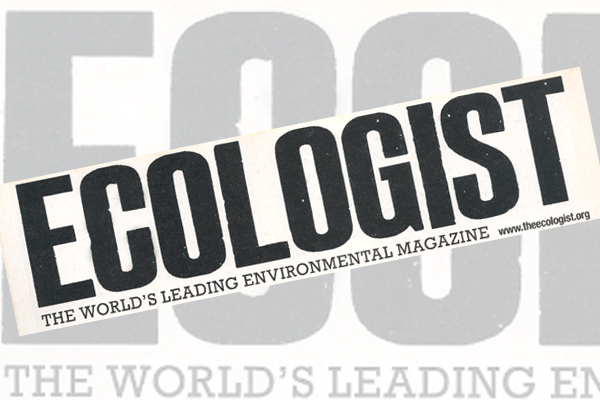Editorial: PR Versus Policies

‘We’d really like a woman to talk about this,’ said the researcher from BBC2’s The Daily Politics show. I marvelled that TV was even more crass behind the scenes than on screen, and wondered did they perhaps imagine me wearing my pinny and brandishing a rolling pin, like Hilda Ogden? Or with cleavage a-popping and a warm apple pie on my lap, à la Nigella?
In any event the show, which focused on Government plans to push GM food back on to the marketplace, was an all-male affair, with the Soil Association’s Patrick Holden isolated in a remote studio in Bristol while three pro-GM pundits (two in the studio, one on film) made their case.
The media’s renewed interest in GM has been sparked by comments apparently made by departing chief scientific adviser Sir David King, to the effect that the public’s attitude to GM is ‘softening’ and that acceptance of GM is now necessary and unavoidable if we are going to feed the world in the future. His successor John Beddington agrees.
The latter point is based on a widely held, but erroneous, assumption that people go hungry because we don’t produce enough food. In fact, the UN estimates that we produce about one and a half times the amount we need to feed the entire world. People go hungry because of the unsustainable structure of our political and economic systems. They starve because of the free market, where everything goes to the highest bidder rather than to those who need it most.
The former point was worrying, though. Was the public going soft on GM? If anyone would know, our supermarkets – all of which retain market research that can predict what you will have for breakfast next Tuesday – would. We phoned around. All said they have no plans to introduce a GM ‘choice’ because there is no consumer demand.
The push is on, however, to create that demand, and the best argument our politicians can muster is the scientific equivalent of ‘where’s the harm?’. They can say truthfully that they have never seen any data showing that eating GM is harmful to humans, because, of course, the research has never been done. But lack of evidence does not equal evidence of safety. Indeed, from a scientific perspective, GM breaks every sacred tenet of science. Where are the double-blind, randomised, controlled human trials – and especially those involving pregnant women and children, the ones most likely to be harmed by the toxins present in GM foods? The animal data is truly frightening, showing sterility and increased neonatal deaths; not to mention cancer, systemic organ failures and allergic reactions. Why would any government sanction such madness?
The push for GM isn’t because it will increase crop yield, or because it will reduce pesticide use, or because it will provide more nutritious food – GM delivers none of these things. The push for GM is about money. Indeed, David King suggests that by not embracing GM food our economy has already ‘lost’ between £2 billion and £4 billion – a figure that appears to have been plucked out of thin air (see News, page 8). And honestly, what is this piddling amount of money (roughly equivalent to eBay’s annual turnover, or that of the video games industry) held up next to the £9 billion being spent on the Olympics, the £100 billion we will be spending on the nuclear weapons programme over the next 50 years or the £135 billion our Government spends in procurement of everything from paperclips to fuel?
The GM push is a short-term gamble on the future value of our ‘knowledge economy’ – our ability to generate profit by selling ideas to other (usually poorer) countries as a ‘solution’ to their problems – never mind the long-term cost to biodiversity and human health.
Over the next few years you are going to be bombarded with a lot of stage-managed information about things such as GM, nuclear power and incinerators (see stories pages 28 and 44). This PR onslaught is the action of a Government that has been near-paralysed by the sheer scale and complexity of the problems we face, and as a result has resorted to PR instead of policies to ‘fix’ things. It’s going to take people of character, intelligence and tenacity to keep saying no – and mean it.
Now, where exactly did I put my rolling pin…?
- This editorial first appeared in the February 2008 edition of the Ecologist.












